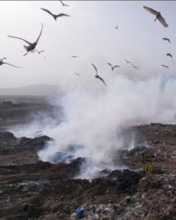“Justice will not be served until those who are unaffected are as outraged as those who are.”
That quote has been one of my favourites for years. It had been attributed to Benjamin Franklin, one of the founding fathers of the United States. However, fact-checking has made me realise there is no credible evidence that he said it. Regardless, the quote resonates with me. The bottom line is that without empathy, there will be no justice.
As Martin Luther King Jr said, and this has been fact-checked, “Injustice anywhere is a threat to justice everywhere. We are caught in an inescapable network of mutuality, tied in a single garment of destiny. Whatever affects one directly affects all indirectly.” The negative force of injustice anywhere can potentially harm those distant from it, even in places where justice currently exists. We, therefore, all have a responsibility to take a stand when we witness injustice.
Think about it, groups that have faced oppression have benefited from empathetic allies from communities outside theirs, especially those that possess more power and whose members make the rules that adversely affect them. For example, women’s rights movements have benefited from the input of men. After all, we live in a patriarchal world. Men make and enforce nearly all the rules. Regardless of whether a society is a democracy, theocracy, dictatorship or other form of governance, even if a man is not at the helm at present, most of the rules in existence there would have been constructed by men.
Similarly, the civil rights movement in the United States was bolstered by contributions from white Americans sympathetic to the cause. Likewise, in fighting for their rights, LGBTQ folks have profited from allies who are cis heterosexuals.
LACK OF EMPATHY
An example of how a lack of empathy and tolerance of the distress of others can be a contributing factor to our discomfort is the fire at the Riverton City dump in 2015. Riverton City has been an environmental hazard for years. Large fires occur there almost annually. A study conducted by The University of the West Indies-based Caribbean Policy Research Institute (CAPRI) found that the health of persons living in nearby communities had been adversely affected by the air and water pollution resulting from the mismanagement of the dump, which is supposed to be a landfill. The institute, therefore, reported that the country urgently needed a general waste-management strategy.
But here’s the thing, the neighbourhoods surrounding the dump are inner-city communities, and the people mainly affected belong to the lower socio-economic strata of society. Unsurprisingly, little alarm was raised regarding the findings of the study, and negligible, if any, action taken. However, when a major conflagration erupted at the site eight years ago, and smoke billowed onto the verandas of the homes of the upper echelons of society in the lofty neighbourhoods of Norbrook, Cherry Gardens and Jacks Hill, there was a huge outcry.
The less fortunate among us had been suffering for years, but few cared until the more well-off were affected. Had prompt action been taken and the recommendations of CAPRI been followed, there may have been less pain and suffering. The point is that when we ignore the plights of others who face issues that do not seem to concern us, we are not only doing them a disservice, but possibly also ourselves.
The manner in which the recent salary hikes of the political directorate were carried out, and the negative effects on the psyche of poorly paid civil servants, such as classroom teachers and nurses, is an example of how matters affecting others can insidiously affect us, without us realising it. Those of us who the Government does not pay might look the other way and say it is not our issue. But it is. When demotivated teachers and nurses leave the country, as they are now doing in droves, our education and health sectors suffer. And when those sectors are compromised, the country suffers. Countries that thrive have well-educated populations and efficient health systems. Our country is not on such a path, and we will pay dearly for that.
We do not exist in a bubble. We live on an island but are not islands ourselves. We are more connected to our Jamaican brothers and sisters than many of us realise, and the ability to empathise with them is crucial for our survival as a nation. If we see injustice or unfairness, even in the distance, we ought to speak out, especially if we are privileged enough to have platforms on which to do so. And along with the talking, there must be action. There is power in numbers. As Egyptian Internet activist Wael Ghonim said, “The power of the people is much stronger than the people in power.” (Yes, I fact-checked that too)
Friedrich Niemöller was a German theologian and Lutheran pastor. He was initially a supporter of Adolf Hitler and a self-identified anti-Semite, but later opposed the Nazi regime and was imprisoned for several years. After his incarceration, he expressed deep regret about not having done enough to help victims of the Nazis and delivered another of my favourite quotes:
“First they came for the socialists, and I did not speak out –
because I was not a socialist.
Then they came for the trade unionists, and I did not speak out –
because I was not a trade unionist.
Then they came for the Jews, and I did not speak out –
because I was not a Jew.
Then they came for me –
and there was no one left to speak out for me.”
Niemöller’s words epitomise the importance of speaking out against injustice. In protecting others, we also protect ourselves. We should aim for justice, not just for some, but for all; and without empathy, that justice will evade many.

